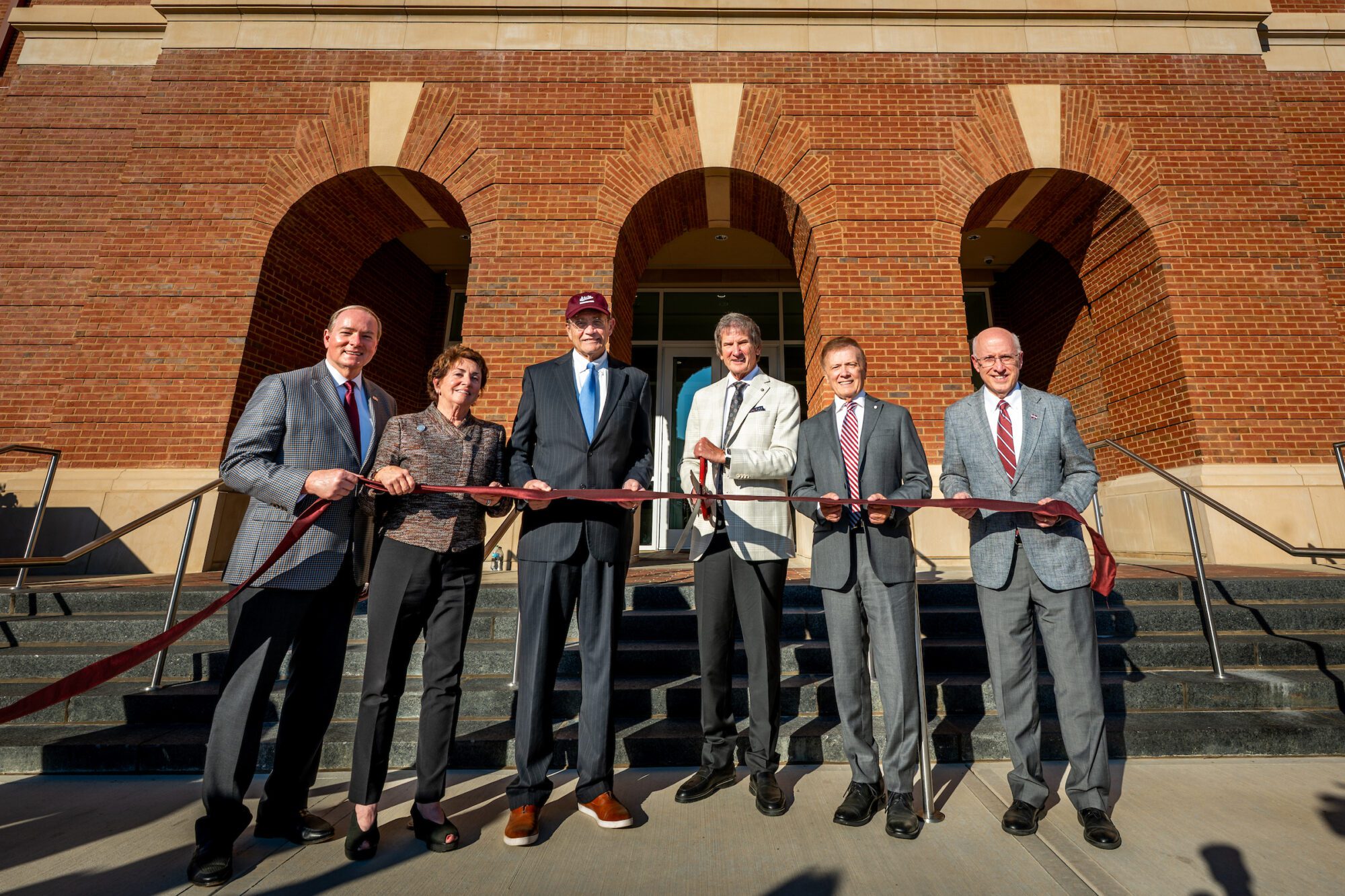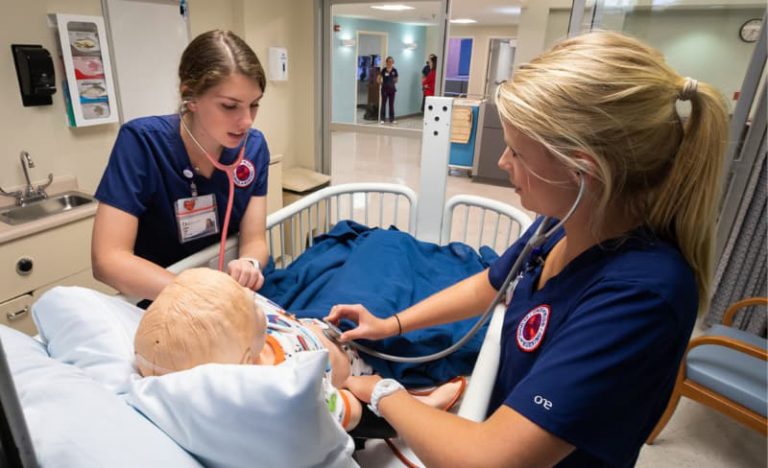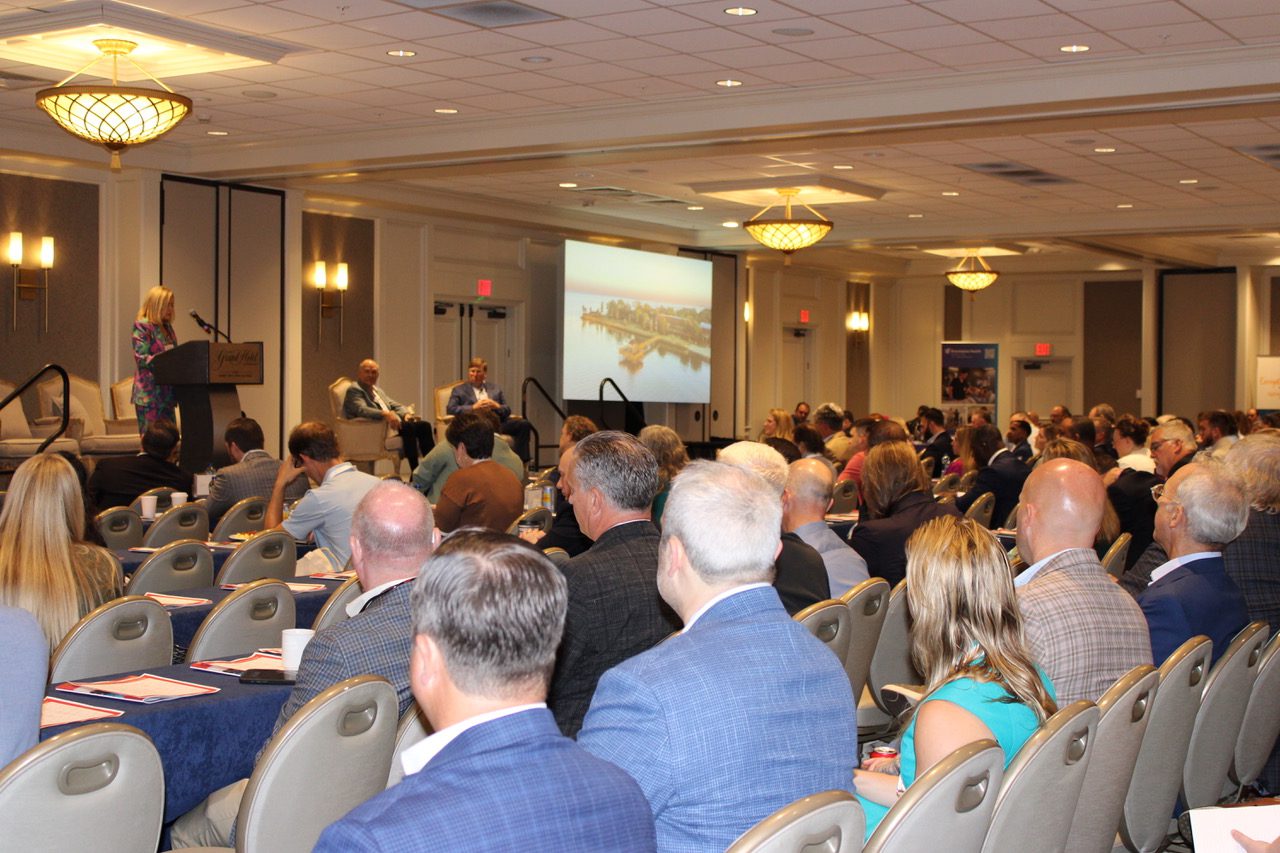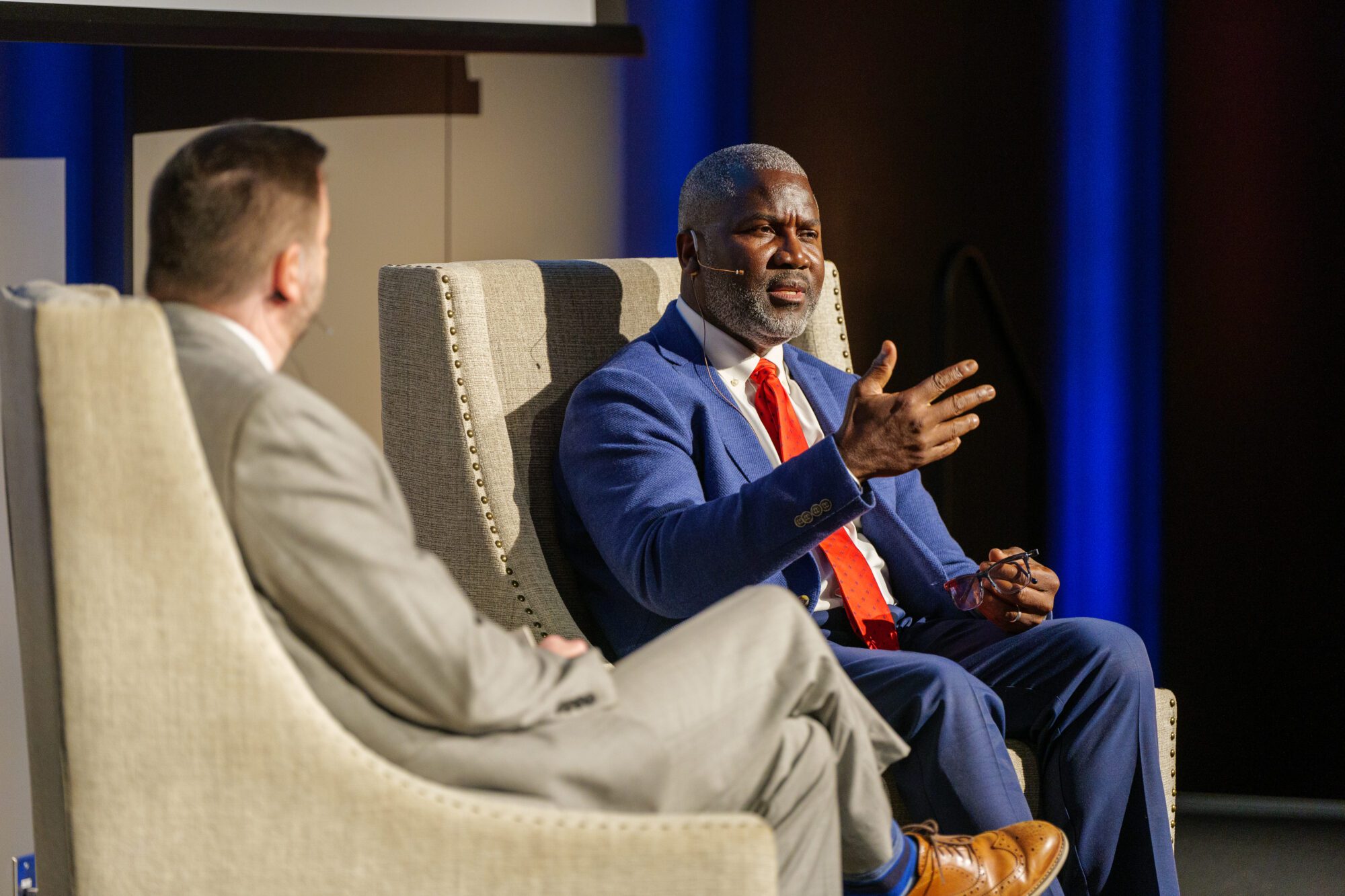
Ian Rowe, senior fellow at the American Enterprise Institute
At Empower’s Unleash Mississippi, AEI Senior Fellow and co-founder of Vertex Partnership Academies Ian Rowe shared what students should learn to lead them to a life of success.
Last week, Empower Mississippi held an event titled “Unleash Mississippi.” At the event, Empower’s CEO Grant Callen held a one-on-one discussion with Ian Rowe.
Rowe, a first generation American, is best known for his advocacy in education. He served as CEO of Public Prep for 10 years until July 2020 before starting a high school level charter-based school. He is also currently a Senior Fellow at the American Enterprise Institute. He most recently wrote a book titled “Agency,” in which he shares a particular perspective regarding how the education system can support young people in making positive choices that will impact their long-term success.
“This process of self-renewal, self-betterment, strengthening who you are, is somewhat what we are trying to cultivate in our students, in my own children frankly,” said Rowe. “A sense that you can lead a self-determined life of purpose and meaning. A life of personal responsibility.”
Since leaving Public Prep, Rowe co-founded Vertex Partnership Academies, a network of charter-based International Baccalaureate high schools that opened in the Bronx in 2022. The premise of the school is to enable high school sophomores to either develop a path toward college or enter into a career program right after graduation. The organization also partners with Public Prep as well as Brilla College Prep.
These schools primarily impact lower income children who are black and Hispanic. Rowe said many of the challenges these children face are similar to the ones seen in states like Mississippi.
“The reason I run schools, is because I want them to know that they can do hard things,” said Rowe.
Rowe speaks out against the victim-hood mentality that has emerged over the last few years. He believes such thinking robs young people of the ability to see a sense of possibility within their own lives.
He uses two meta-narratives to describe these mentalities: Blame the system and Blame the victim.
In a blame the system ideology, a lack of success must point to a failure by the country because it is inherently an oppressive system and nation. Rowe said many who maintain this mentality believe that the system is so powerful that the individual is powerless.
“Obviously with the ‘blame the system’ narrative it robs you of your own sense of self determination,” said Rowe.
A blame the victim narrative focuses less on the system and country and blames the individual. This would indicate that it’s the person’s fault for their lack of success.
Rowe said the idea is to find an empowering alternative between the two.
That’s where the core of his most recent book comes from. In the book, he offers an acronym that is intended to help young people establish that sense of responsibility: F.R.E.E. which stands for Family, Religion, Education, Entrepreneurship.
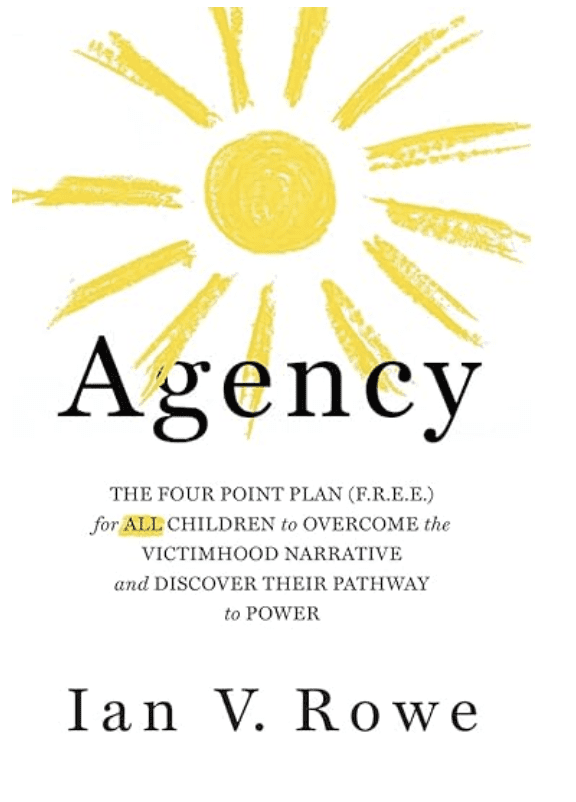
During his time in education, Rowe has worked with a diverse range of children from all different backgrounds. He said many times he has watched these students get to a point where they begin to create the same cycles of disadvantages in their own lives.
But, as Rowe conveyed, he has also seen children raised in those situations who found success by breaking the cycle. In his research, the question he asked was, “What makes the difference?”
Rowe said based on his experience, the success stories are not random. The individuals, as they enter adulthood, usually had a sense of personal agency and personal responsibility that changed how they made choices that impacted their long-term success.
The underlying factor among those individuals, Rowe said, seemed to be recognizing that the most significant decision a human can make is bringing another person into the world. He added that regardless of what their family had been, the key to success was their focus on the family they were on the path to form.
“In almost every system, every neighborhood where you see lots of failing there is almost always success.” Said Rowe. “And yet, somehow we just ignore what are the ingredients that is enabling and empowering people to thrive even in the very conditions so many others are failing.”
He mentioned the Success Sequence. This data shows that 97% of millennials who receive a high school degree, get a full-time job of any kind, marry first and then choose to have children will avoid poverty.
Rowe found that to be very important information for young people to know. If they are not receiving that model at home, he believes schools should outline it in a descriptive fashion.
“Over my course of time seeing young people who broke the cycle of disadvantage, usually they lived by a moral code, typically informed by an organized religion,” said Rowe. “They had a sense of what was right and wrong and more importantly were a part of a community of people that held them accountable.”
He pointed out that in the nation’s own Achievement Report Card there has always been a racial achievement gap. Reading levels for black students have most commonly been lower than white students over the last 40 years. However, the same data indicates that there has never been a year where a majority of white students are even reading at grade level.
Rowe believes that some attempts to lessen that gap would in turn only establish universal mediocrity. He then proposed the question that maybe there are other elements besides racism that are actually impacting students.
While Rowe does not discount the impact of racism and a lack of mobility in certain communities, he refers to it as “surmountable racism.”
“There has never been a human society where humans don’t find a reason to discriminate on another group of people. The question is, what do we do? What do we empower young people to have in their quiver to handle the range of diversity,” said Rowe.
In an area like the Bronx, Rowe said one issue they face on college readiness, which is around 7%, is a lack of law changes to allow for more education access. He said those who are consistently voting against the law changes are black.
“Is that an example of systemic racism when most of the elected officials who are impeding the ability for primarily black and low-income Hispanic students to get an opportunity? That’s whose holding it back.” asked Rowe.
Rowe believes schools can focus on a different framework to empower students without ignoring the impact race has on lives.
He told event goers on Thursday that the new school he is involved in functions under four cardinal values that serve as the “guiding principles.” Those values are courage, justice, wisdom, and temperance. He said he believes that young people need to be taught a sense of personal agency and responsibility in order to be successful. The school’s focus is on cultivating that agency and personal responsibility. These ideas are Rowe’s empowering response to the victim-hood mentality.
“The most important word to walk away with is a word we teach at our school – it’s courage. It’s having the courage to say obvious things,” said Rowe.
